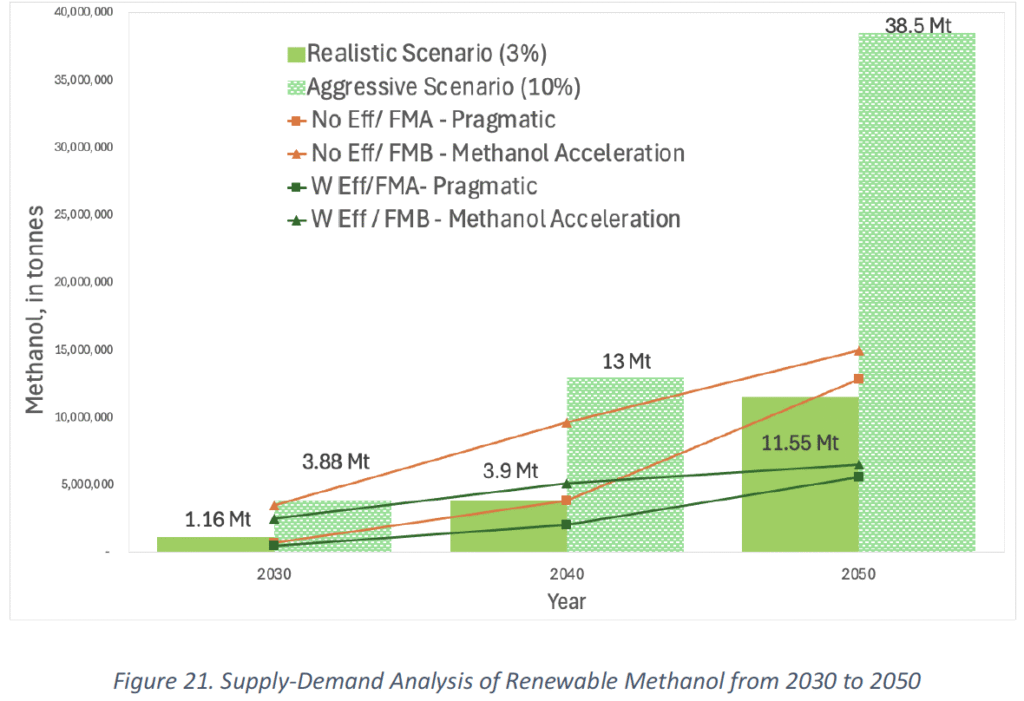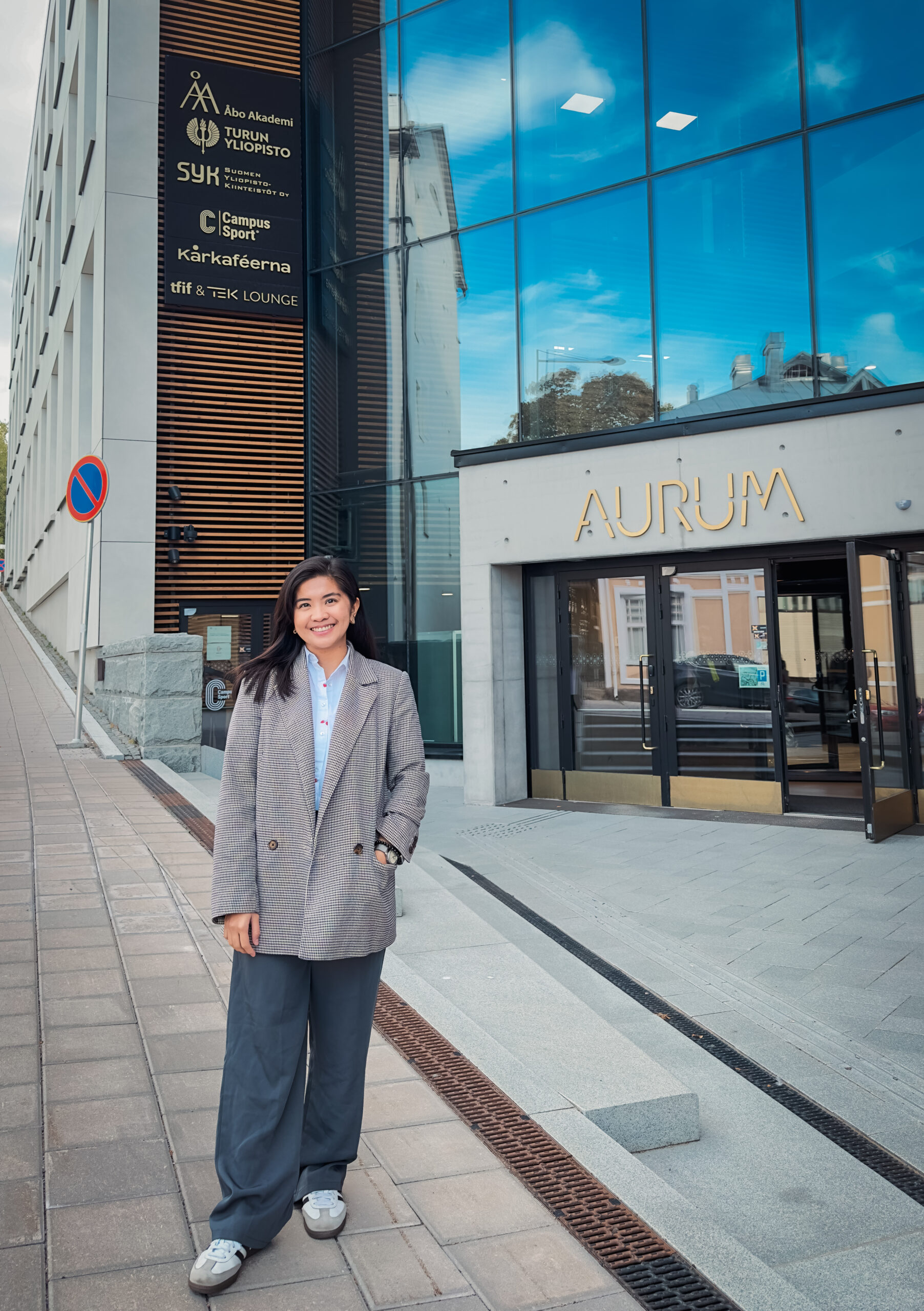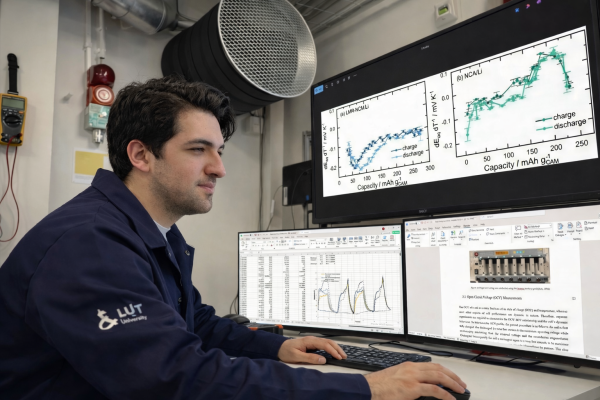The cruise industry is on the brink of major change. As international pressure mounts to cut greenhouse gas emissions, companies are searching for realistic alternatives to conventional marine fuels. Among the most promising options is renewable methanol, a cleaner-burning fuel that could help cruise lines move toward a low-carbon future without requiring dramatic changes to ship design.
Lovely Moreno, a recent graduate of the International Master’s Programme in Technology and Management for Circular Economy at Åbo Akademi University, has explored this challenge in detail. Her Master’s thesis examines the potential of renewable methanol as a marine fuel for cruise ships, with a particular focus on availability, cost-effectiveness and the barriers to implementation.
Her research was carried out within the Flexible Clean Propulsion Technologies (Flex-CPT) project, which develops new approaches to the energy transition in the maritime sector. Moreno’s work contributes directly to the project’s mission of advancing sustainable propulsion systems through applied and interdisciplinary research.
Moreno began her academic path in chemical engineering and later developed a strong passion for sustainability and the circular economy. Before her studies in Finland, she worked in a fast-moving consumer goods company where she saw first-hand how sustainability goes beyond environmental issues and must also address social and economic realities.
“The maritime sector is one of the hard-to-abate industries because of its heavy reliance on fossil fuels,” she explains. “That complexity is what made me want to study it more closely.”
At the heart of Moreno’s thesis is a simple but pressing question: can renewable methanol realistically power the cruise industry over the next 25 years, and what would be required to achieve it?
To find answers, she projected the future energy demand of the cruise sector through 2050 and compared it with global supply estimates for biomethanol and e-methanol. Her analysis also considered how carbon pricing, emissions penalties and efficiency improvements could influence the industry’s ability to make the switch.
“My research aims to answer these fundamental questions: can cruise ships stop using fossil fuels and switch to greener alternatives, and if so, will these fuels actually be available?” Moreno says. “The transition is possible, but it is not a simple fuel swap. It requires energy efficiency improvements, timely completion of methanol production projects and the development of port and bunkering infrastructure.”
The thesis connects strongly with Flex-CPT Work Package 3, which investigates the feasibility of carbon-neutral fuels in maritime applications and is led by Katriina Sirviö from the University of Vaasa. Moreno’s contribution includes a comparison of different methanol production pathways and their lifecycle emissions, highlighting the importance of looking at well-to-wake impacts when evaluating sustainability.
One of the most striking conclusions is the scale of the supply challenge. By 2050, the cruise sector may need access to around 10 percent of global renewable methanol production in order to meet emission reduction targets. With demand also increasing in chemical manufacturing, freight transport and other sectors, that requirement raises important questions about infrastructure planning, international coordination and investment in production capacity.
Another central finding concerns costs. Green methanol remains more expensive to produce than conventional fuels today, but Moreno’s modeling shows that it could become cost-competitive by 2040. Progress would depend on improved plant efficiency, wider adoption of carbon taxes and advances in renewable energy and hydrogen technologies.
“This finding broadens the discussion from being purely about the environment to also being about financial and strategic considerations,” she says. “It shows that investing in green fuels is not just about compliance but also about reducing financial risks in the long term.”

Her research also observed a shift in the investor landscape. Many of the companies driving renewable methanol production are independent project owners, renewable energy developers and OEMs rather than traditional methanol producers. Moreno sees this as a sign of growing momentum in the sector.
Moreno acknowledges that the project was not without difficulties. Gathering and synthesizing data from sources such as IMO reports, CLIA studies, DNV publications and cruise line sustainability strategies was a challenge in itself. The uncertainty of long-term projections added another layer of complexity. She addressed this by building multiple scenarios instead of relying on a single projection, which she believes makes the conclusions more robust.
Despite these challenges, Moreno’s thesis goes beyond models and numbers by offering a practical roadmap for how the cruise industry could adopt sustainable fuels. Her findings highlight renewable methanol not only as an environmental solution but also as a source of long-term cost competitiveness. She emphasizes that early action, such as securing long-term fuel contracts similar to those already pursued by some shipping leaders, will be essential to ensuring stability of supply. While focused on the cruise sector, the research also points to wider applications in aviation, power generation and other industries facing similar energy transition challenges.
Now that her thesis is complete, Moreno is eager to apply her knowledge to real-world solutions.
“My immediate goal is to contribute to sustainable development in a tangible way,” she says. “Whether in the maritime sector, the fuel industry or related fields, I want to transform this passion into meaningful, practical applications.”
Her thesis was supervised by Prof. Magnus Hellström and M.Sc. Ramtin Heydarian, who guided her in developing a project that stands as both an academic achievement and a practical contribution to ongoing energy transition efforts.
Lovely Moreno’s research adds valuable insight to the Flex-CPT project and highlights the scale of the challenges facing the cruise industry. By combining economic, environmental and infrastructural perspectives, her work shows how renewable methanol could become a vital part of the industry’s low-carbon future.



